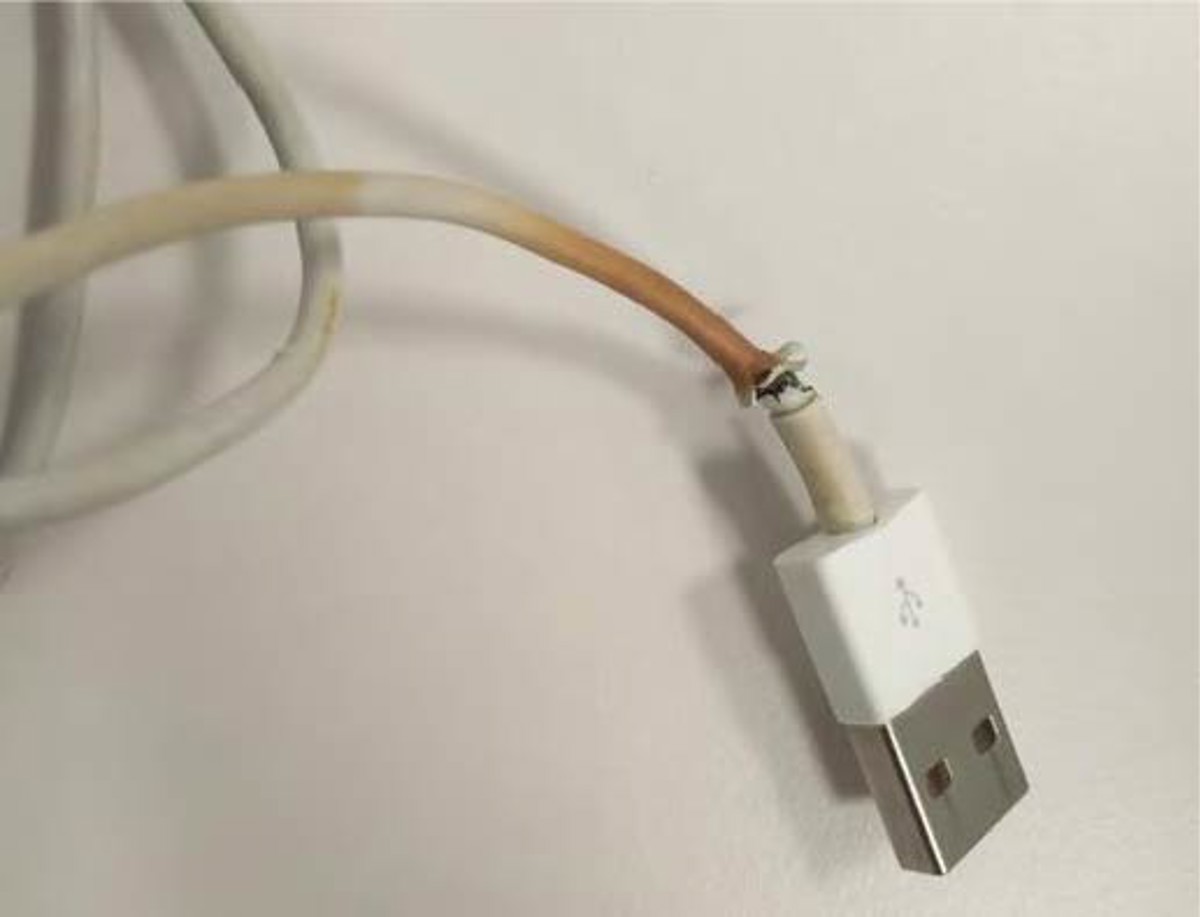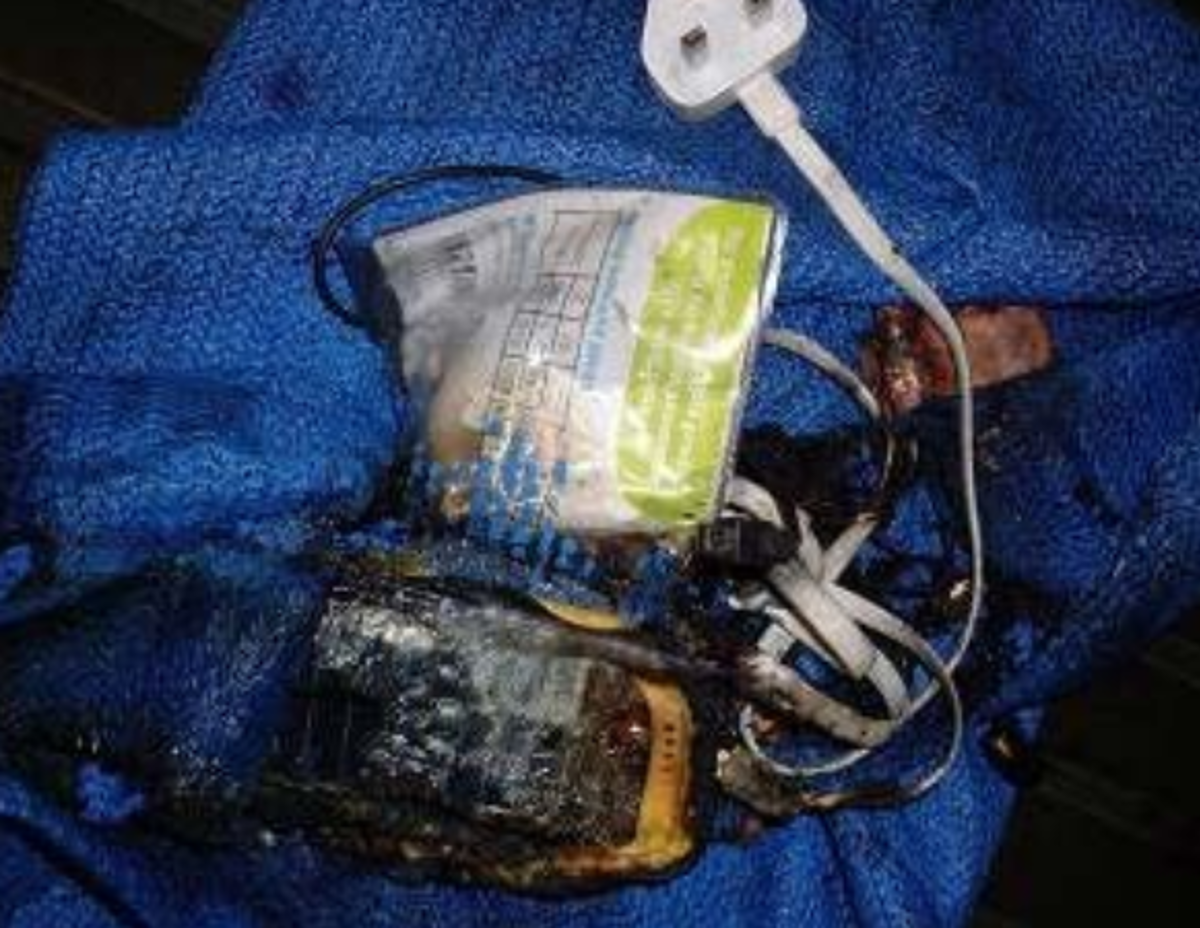Mobile phone charger failures
- Safety Flash
- Published on 27 June 2016
- Generated on 16 February 2026
- IMCA SF 16/16
- 3 minute read
Jump to:
IMCA brings to members’ attention two recent incidents relating to failures of charging equipment for mobile phones and other small portable equipment using lithium batteries.
Incident 1
A member has reported an incident in which a charging cable for a mobile phone was discovered smouldering. A shore-based member of staff was at work at their work station when they noticed that their phone adaptor charger, which was plugged in and charging their phone, began smouldering. The employee immediately turned off and unplugged the charger and reported the occurrence.
On inspection of the phone charger, it was noticed that the charger cable was damaged and in an old and worn out condition which lead to it overheating.

A summary of actions:
- The stop work policy actually worked: The adapter was immediately unplugged and the burned cable was removed from use, and the occurrence was immediately reported.
- A safety stand down was conducted with office personnel to discuss the importance of being more attentive to the condition of electrical appliances.
- A monthly office inspection schedule was established and implemented, emphasizing the checking of electrical equipment, fire detection equipment and fire-fighting equipment.
Lessons Learnt:
- The importance of checking the condition of personal electrical equipment.
- Electrical hazards are all around us not just on the vessel but in the office as well. The following points may be useful:
- all electrical appliances being used should be genuine and in a good working condition
- plug sockets and extension leads are to be used correctly and not overloaded
- care should be taken when dealing with different styles of plugs and sockets from different countries
- ensure all electrical appliances are switched off after use or before leaving the place of work
- ensure all electrical appliances are clear from any liquid spillage
- ensure all extension leads are tidy and do not constitute a trip or fall hazard
- if you notice or suspect any electrical hazard in the work place report it immediately.
Incident 2
The Marine Safety Forum has reported a small fire in a crew member’s cabin on a vessel. It was thought to have been caused by the overheating of a battery. The crew member who was not in his cabin at the time, had left a power bank (battery pack for charging small appliances) charging and unattended. This unit appeared to be a cheap unit purchased online.

Members should take great care with mains battery chargers, lithium battery ‘power banks’ and USB cables that are not ‘OEM’ (Original Equipment Manufacturer). It is particularly important to ensure that USB cables are appropriate to safely handle the higher levels of current delivered by some modern chargers.
Portable electrical equipment brought on board vessels should be checked and rated against the ships power supply by qualified personnel. Electrical items should not be left charging, or on standby, in unoccupied spaces (such as cabins.)
IMCA Safety Flashes summarise key safety matters and incidents, allowing lessons to be more easily learnt for the benefit of the entire offshore industry.
The effectiveness of the IMCA Safety Flash system depends on the industry sharing information and so avoiding repeat incidents. Incidents are classified according to IOGP's Life Saving Rules.
All information is anonymised or sanitised, as appropriate, and warnings for graphic content included where possible.
IMCA makes every effort to ensure both the accuracy and reliability of the information shared, but is not be liable for any guidance and/or recommendation and/or statement herein contained.
The information contained in this document does not fulfil or replace any individual's or Member's legal, regulatory or other duties or obligations in respect of their operations. Individuals and Members remain solely responsible for the safe, lawful and proper conduct of their operations.
Share your safety incidents with IMCA online. Sign-up to receive Safety Flashes straight to your email.